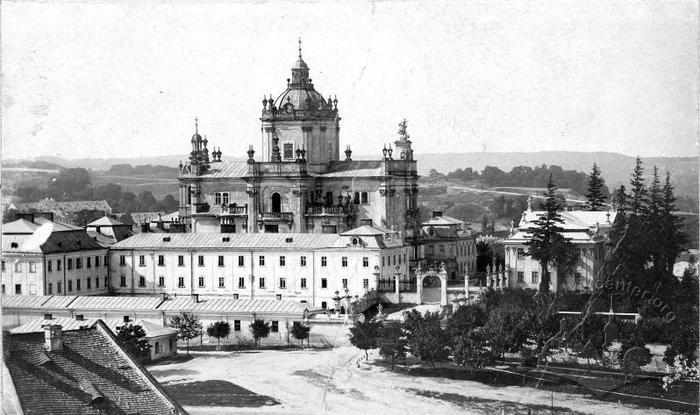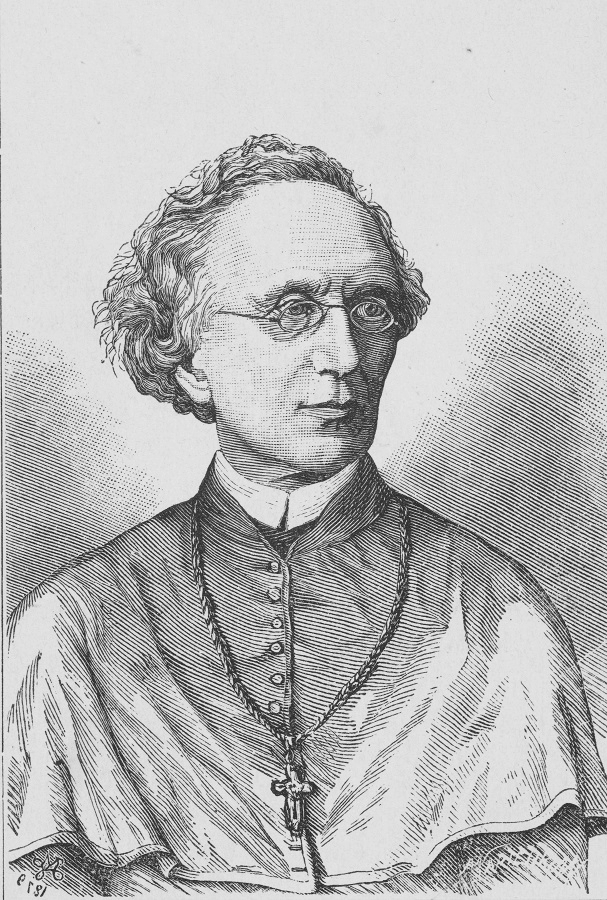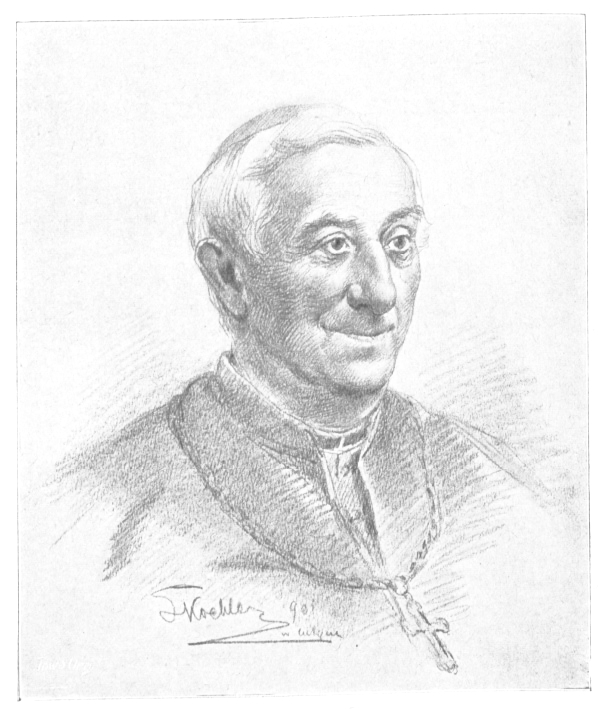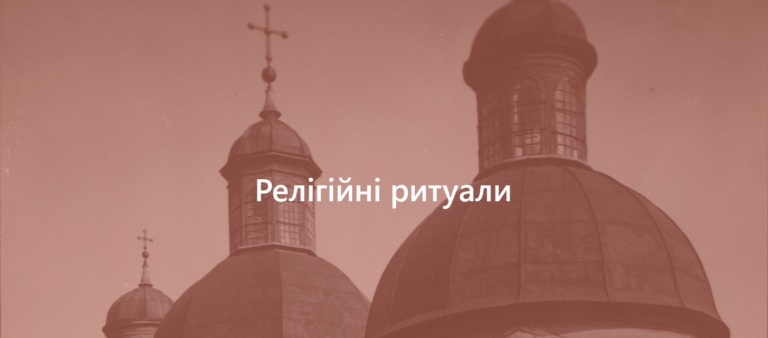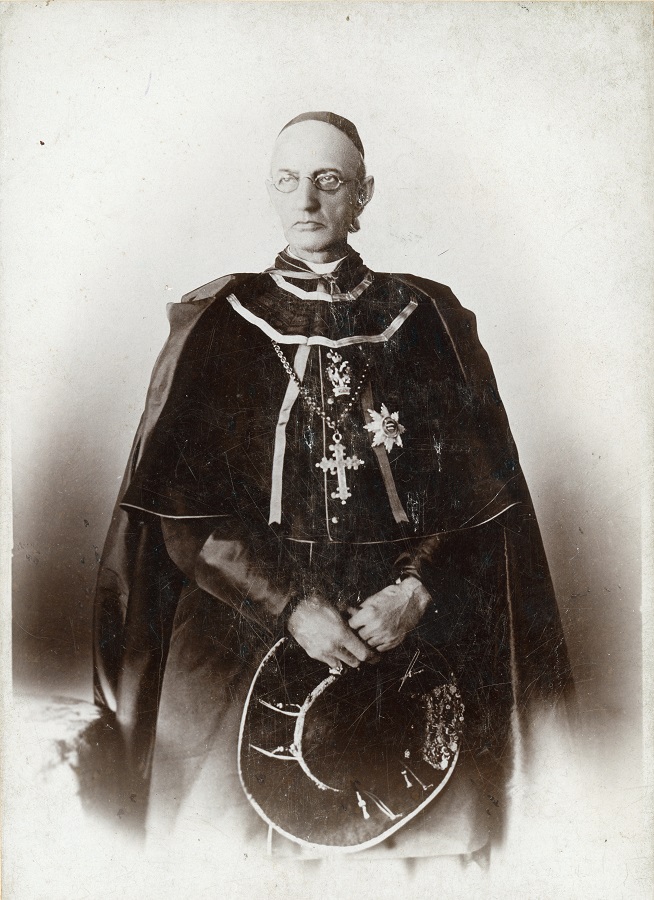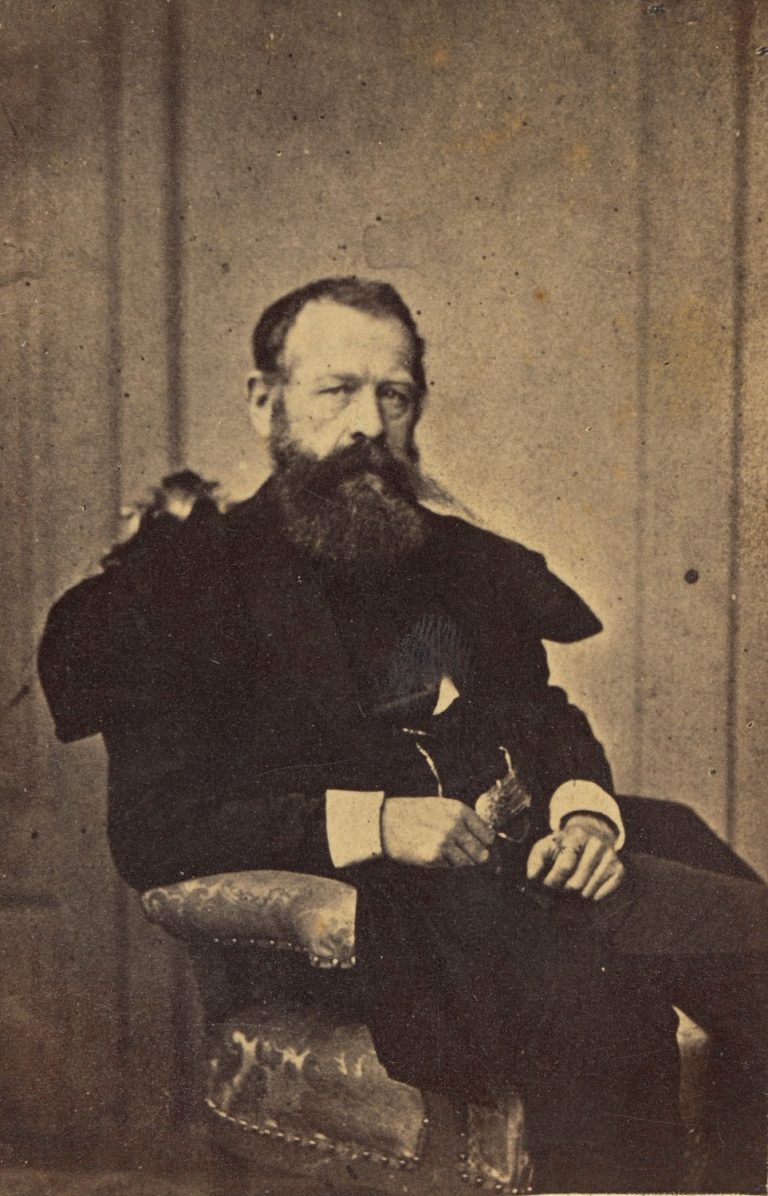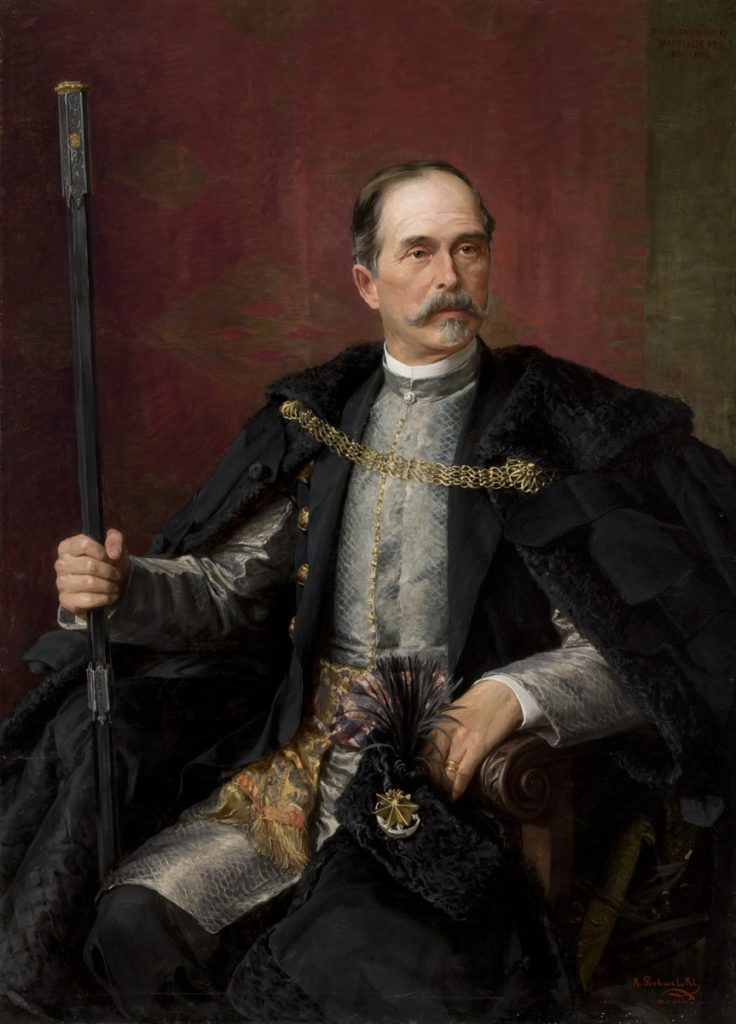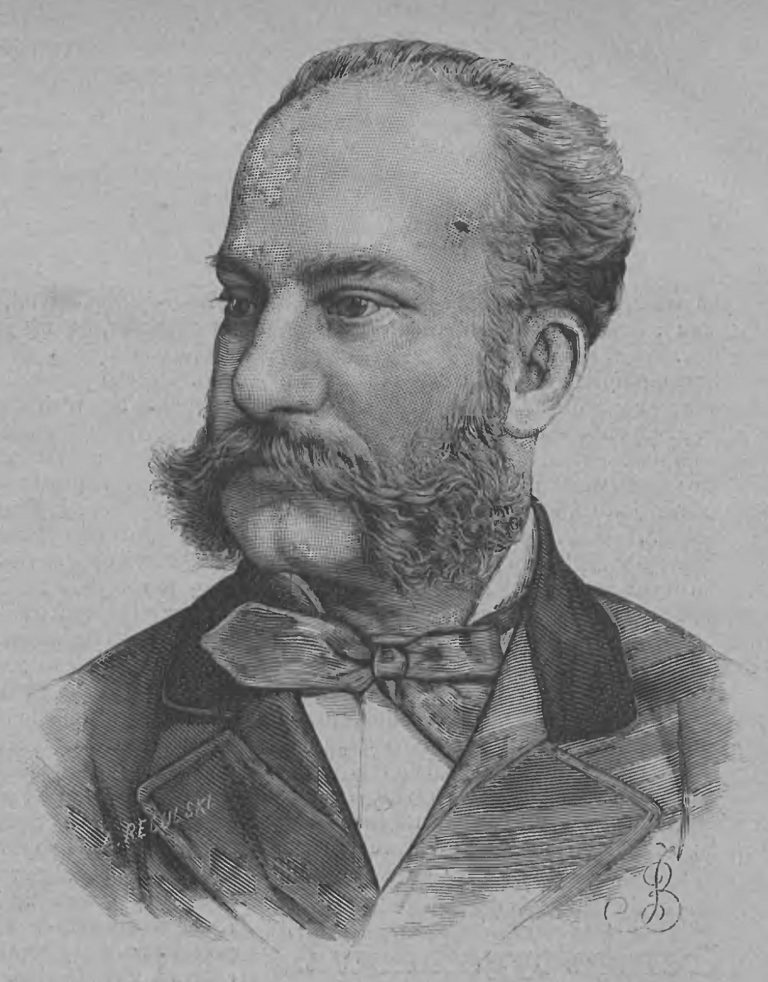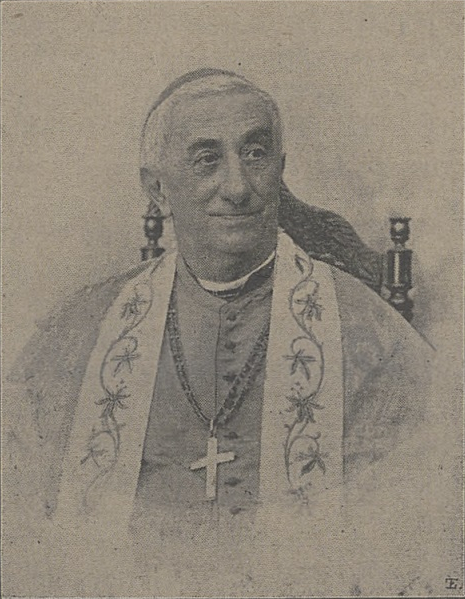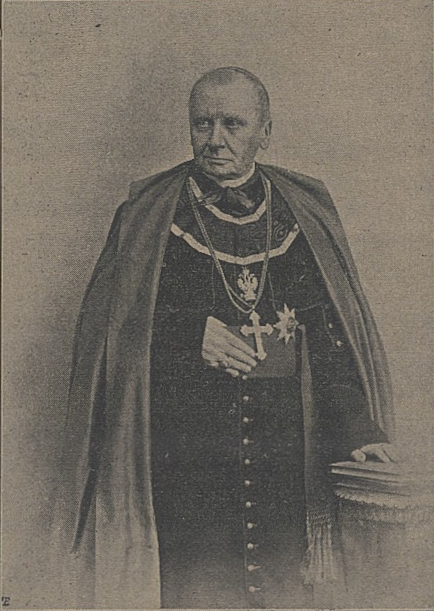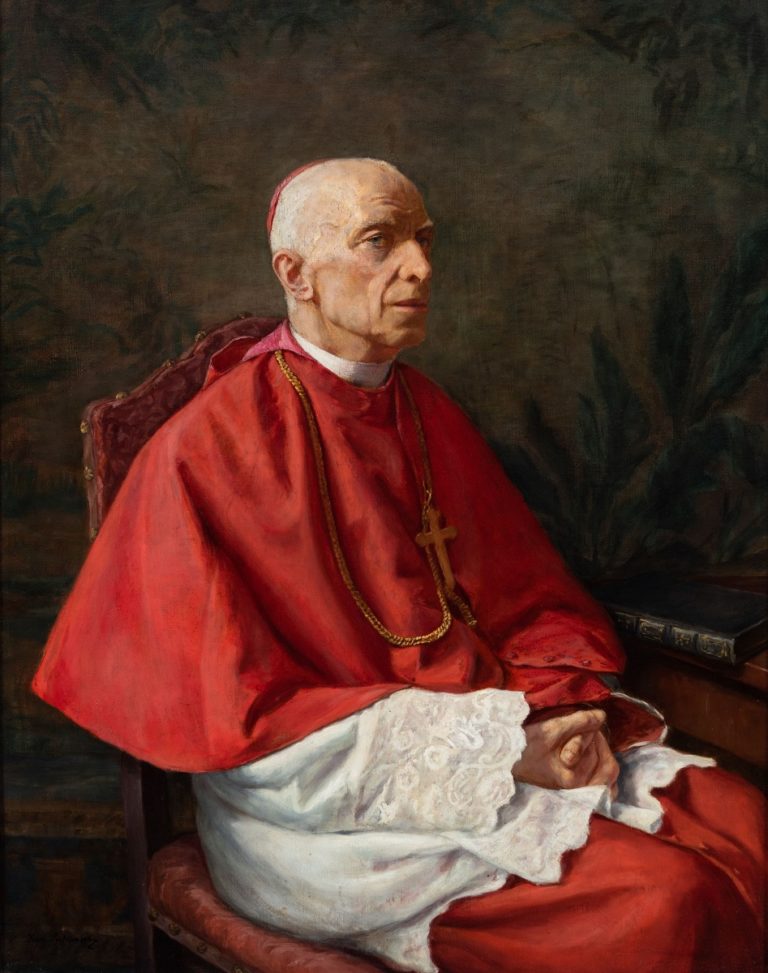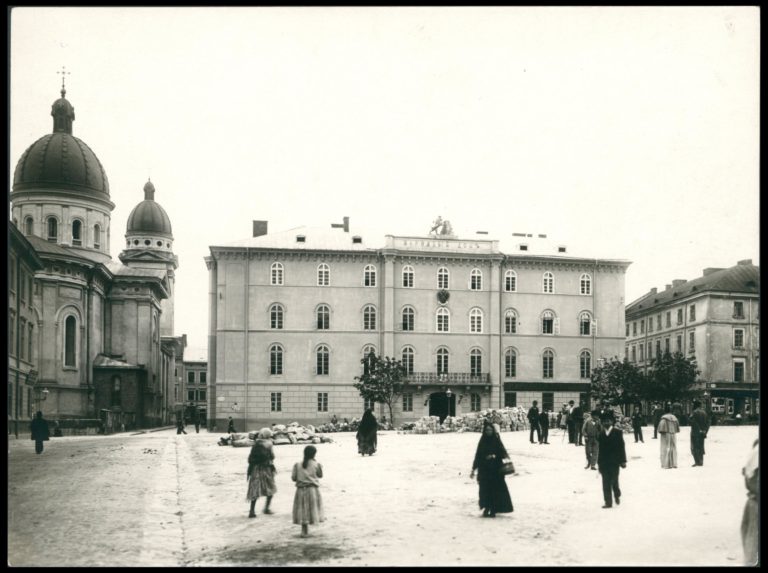Unlike the 300th anniversary of the Union of Brest, the celebration of the 900th anniversary of the baptism of Rus was symbolically connected not with Rome, but with the East Slavic space. The very idea of the celebration originated in the Russian Empire, so its celebration in Lviv could be perceived by both the provincial authorities and the government in Vienna ambiguously. In addition, this anniversary did not fit into the policies of the pro-Western Metropolitan Sylvester Sembratovych. Therefore, it was organized rather under public pressure.
* * *
The idea of the celebration arose in the Russian Empire and was supposed to emphasize the unity of the lands of ancient Rus under the scepter of the Romanov dynasty. In Galicia, on the other hand, completely different questions arose: about the place of Prince Volodymyr in the Greek Catholic host of saints, about the Galician Ruthenians in the general Slavic and Eastern Slavic space, about identity and history in general.
Russophile and Ukrainophile politicians obviously had different attitudes to the interpretation of this anniversary. However, both groups agreed that they did not accept theses about the predominant influence of the Latin West on the Christian culture of the Ruthenians. Therefore, the question "to celebrate or not to celebrate" did not arise among politicians. Pro-Western Metropolitan Sylvester Sembratovych agreed to the celebration, but only in October, when the July celebrations in Kyiv had already passed. The celebrations in Lviv, organized by the Greek Catholic Church, looked more than modest against the background of those in Kyiv, in which the entire state apparatus of the Russian Empire was involved. Nevertheless, on October 13, religious services were held in the churches and schools of the province. Representatives of the government and the higher clergy took part in the main festivities in the cathedral of St. George, which began at 9:30 a.m., and the Galician provincial Diet (Sejm) postponed its session on this occasion.
- Митрополит Сильвестр Сембратович / Metropolitan Sylvester Sembratovych
- Собор св. Юра / St. George Cathedral
The event was attended by the Roman Catholic Archbishop of Lviv, Seweryn Morawski, the Armenian Archbishop Izaak Isakowicz, priests from throughout the province, Latin bishops from the whole area (in particular, Cardinal Jan Puzyna), Minister Filip Zaleski, the Sejm Marshal Jan Tarnowski, President of the State Council Franciszek Smolka.
Over 5,000 peasants, who came from throughout the province, filled the yard of the cathedral of St. George and St. George's Hill. After the divine service, there was a consecration of water in the grotto of St. Onuphrius, and after that, a dinner party at the metropolitan's residence.
The toasts given at this dinner were quite eloquent. The first two were from Metropolitan Sylvester Sembratovych, "in Ruthenian", to the pope and to the emperor, under whom the Ruthenians could "profess the faith of St. Volodymyr in union with Rome", as well as to the present bishops of other rites, who in this way "proved respect for the Ruthenian Church and its rite." The third toast, to Metropolitan Sembratovych, was given by Archbishop Isakowicz in Polish.
The last, fourth toast, was given by the Bishop Albin Dunajewski of Krakow. Raising a glass to the members of the Greek Catholic chapter, he recalled that he "was born in Ruthenia, was lulled to sleep by Ruthenian songs and feels affection for the Ruthenian nation." He also spoke about the fact that Greek Catholics in Krakow could attend services in their rite in the cathedral, where a priest from the Chełm Land worked. The latter fact is a very important nuance, as in 1875 the Chełm eparchy of the GCC on the territory of the Russian Empire was abolished, with some of the priests and parishioners deported or expelled. This position of the Polish episcopate was evidence of solidarity with the Greek Catholics (although one should distinguish the attitude towards the Greek Catholics in Galicia and in the Russian Empire, where the Uniates were natural allies of the Roman Catholics against the state-imposed Russian Orthodoxy).
- Альбін Дунаєвський / Albin Dunajewski
- Ісак Іссакович / Izaak Isakowicz
Despite the fact that the events on the occasion of the 900th anniversary of the baptism of Rus were organized by the church and were positioned as purely ecclesiastical, the press of the time noted the political undertones immediately. Polish democratic periodicals reported that, especially in view of the July celebrations in the Russian Empire, it had been decided in Vienna to give the celebrations an official character, to show respect "to Rus and its history", and that this could be a turning point in the government's relations with the Ruthenians.
In addition to the main celebrations on October 13 in St. George's cathedral, there were also local initiatives. On October 11, the Russophile Society of Russian Ladies ("Общество русскихъ дамъ") organized a "reception" in the People's House with music, dances, and recitation of poems. On October 13, the teacher seminary held an event for students of all denominations, where speeches were made about the "Ruthenian struggle for their faith" and the "joint struggle of the Poles and Ruthenians against enemies." On the periphery, the celebration moved much further from the ecclesiastical nature of the festivity and from political caution: a concert in Mykulyntsi, for example, ended with the performance of the anthem "Ukraine is not dead yet".
As a result, St. Volodymyr became entrenched in the mythology of the Galician Ruthenians, but not in the way that the Russophiles wanted it to be: he became a factor of unification not with Russia or Rus, but with Dnieper Ukraine.

